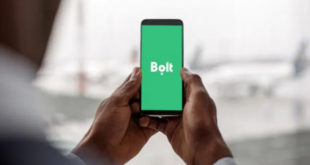It is expected that the rise in fuel would lead to a litre of diesel and petrol seeing about 2% increments at the pumps due to the rising price of finished products on the international market.
This means a litre of fuel would be sold at an average price of ¢6.33 by Oil Marketing Companies (OMCs). Meanwhile, a gallon could be sold at GH¢28.48.
It implies that a larger share of household budgets will be spent on fuel, thereby increasing living costs.
There have been more than five fuel price increments since the start of the year, with the last one being in June.
The average price of fuel per litre around December 2020 was GH¢ 4.7 per litre, but fuel prices hit GH¢ 6.1 per litre in May 2021 and further increased to GH¢6.23 per litre in June 2021.
Rising fuel prices have ignited worry that consumers may end the year paying an all-time high rate per litre.
The Executive Director of the IES, Nana Amoasi VII, said: “We have projected that by the next six months, we will buy a litre of approximately or close to GH¢7 if things continue the way it is going.
“Unfortunately, this is what we will arrive at. Unfortunately, this is not what we expect to see,” he said. “Per our projection, there was a clear indication this was going to happen. Largely, we are importers of petroleum products and the quantities we consume in a day is far in excess of what TOR produces.
“Last year, we sought for more than 95 per cent of our product, and so anytime you see the price of crude oil going up, it has the corresponding impact on petrol, diesel and the like.”
Crude oil-producing country importing fuel for use
Despite the country producing oil in large quantities, the lack of refineries has prevented the country from enjoying lower prices of finished products.
As of September 2020, crude oil production capacity in Ghana was 196,000 barrels per day.
Addressing a meeting with 20 international oil companies in Norway, Finance Minister Ken Ofori-Atta indicated that Ghana could hit 500,000 barrels per day by 2025.
However, Ghanaians continue to buy fuel at exorbitant prices due to importation and taxes slapped on the commodity.
What can be done to address the situation?
The COPEC-Ghana Executive Secretary told theghanareport.com, “We have a local refinery that we could have leveraged to get some fuel security at lower prices, but unfortunately, we don’t think there is the political will to refurbish the Tema Oil Refinery”.
Mr Amoah observed a fully functional refinery would cut the logistical cost, which adds to the price build-up by exporting crude to Europe to be refined before importing back to Ghana.
“The need to get TOR back on stream and the need for political interference to be stopped holds the key for all for us,” he underscored.
Additionally, he cited the Bulk Oil Storage and Transportation Company Limited (BOST) failure in executing its mandate.
Mr Amoah explained that BOST is supposed to store huge volumes of fuel and release to the market to level prices and to check shortages “without overstretching the already burdened Ghanaian taxpayer”.
However, “we do not see that function of BOST, and they are now focusing on trading…which was not the purpose of the BOST Act but to hold strategic stock”.
Minority reaction
Earlier this year, the Minority in Parliament raised concern over the increment in fuel prices, which started in the February window.
The Minority Spokesperson on Energy John Jinapor believed that the increases in the prices of petroleum products showed that the government was being insensitive to the plight of Ghanaians.
He explained that the increment would worsen the living conditions of Ghanaians due to taxes introduced on fuel.
What levies have been introduced?
Presenting the 2021 Budget Statement and Economic Policy on Friday, March 12, caretaker-Finance Minister Osei Kyei-Mensa-Bonsu explained, “government is proposing a Sanitation and Pollution Levy (SPL) of 10 pesewas on the price per litre of petrol/diesel under the Energy Sector Levies Act (ESLA).
He added: “Mr Speaker, it has become very necessary for the government to consider a review of the energy sector levies. The Energy Sector Recovery Levy of 20 pesewas per litre on petrol/diesel under the ESLA is hereby submitted to this House for approval.”
According to him, under the Energy Sector Recovery Levy (Delta Fund), the government abolished excise taxes and reduced the special petroleum tax from 17.5% to 13% to mitigate the impact on domestic petroleum prices when crude oil prices increased substantially between 2017 and 2018.
“However, due to the difficulties faced by our economy arising from higher excess capacity payments in the energy sector, which have not reflected in electricity tariffs,” the government has been compelled to revisit the levies.
He pointed out the need to find additional resources to cover “excess capacity charges that have resulted from the Power Purchase Agreements (PPAs) signed by the previous government, which required payments for capacity charges even when the plants involved were idle or unutilised”.
The Ministry of Finance said it paid over GH₵12 billion as the cost of excess energy capacity charges inherited since 2017.
Consequently, the National Petroleum Authority (NPA) announced a 17 pesewas per litre increment, resulting in fuel prices beyond GHC 6 per litre for some Oil Marketing Companies (OMCs).
However, the NPA announced a downward review after meeting with stakeholders.
“The 17 pesewas per litre increase in fuel margins previously announced by the NPA has been reduced to 9 pesewas per litre effective tomorrow Wednesday 5th May 2021,” a communique by NPA said.
The increment was due to taxes that the government had imposed during the 2021 budget.
Cap fuel taxes
But COPEC Executive Secretary Duncan Amoah wants parliament to place a ceiling on fuel taxes because no legislation specifies what is permissible.
Consequently, “any Finance Minister can slap any amount of fuel taxes and if parliament goes ahead to accept without scrutiny Ghanaians will be doomed”.
The legislation would cap fuel taxes, and finance ministers would be compelled to look for revenue from other sources once the threshold is triggered.
“Consumers should not be taxed beyond 25 per cent of the cost of fuel products,” he concluded.
 Home Of Ghana News Ghana News, Entertainment And More
Home Of Ghana News Ghana News, Entertainment And More




